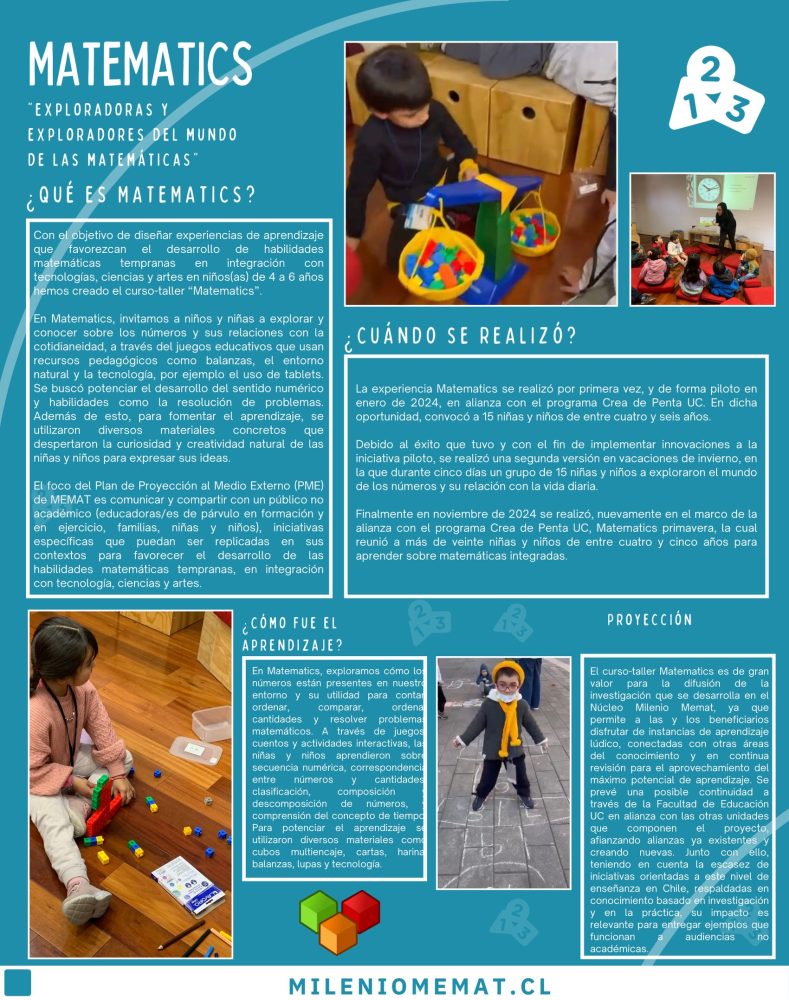WHAT IS MATEMATICS?
With the goal of designing learning experiences that foster the development of early mathematical skills through the integration of technology, science, and arts in children aged 4 to 6, we created the “Matematics” course-workshop. In Matematics, children are encouraged to explore and learn about numbers and their connections to everyday life, through educational games that incorporate educational resources such as scales, the natural environment, and technology, with the use of tablets for example. The aim was to promote the development of number sense and skills such as problem solving. Additionally, various hands-on materials were used to stimulate children’s innate curiosity and creativity to express their ideas. MEMAT’s Outreach Plan (PME) focuses on communicating and sharing targeted initiatives with a non-academic audience (early childhood educators in training and practice, families, and children) that can be replicated within their own contexts to promote early mathematical skills integrated with technology, science, and the arts.
WHEN DID IT TAKE PLACE?
The Matematics experience was first conducted in January 2024 through an alliance with Penta UC’s Crea program, involving 15 children between aged four to six. Considering its success and aiming to implement innovations to the first version, a second version was carried out during the winter holidays, where a group of 15 children explored numbers and their relationship with daily life over five days. Finally, in November 2024, Matematics primavera was held, once again in collaboration with Penta UC’s Crea program, bringing together over twenty children aged four to five to learn about integrated mathematics.
What was it like to learn?
In Matematics, we explored how numbers are present in our environment and their usefulness for counting, sorting, comparing, ordering quantities, and solving mathematical problems. Through games, stories, and interactive activities, children learned about number sequence, the correspondence between numbers and quantities, classification, composition and decomposition of numbers, and the concept of time. Various materials, such as multi-package cubes, cards, flour, scales, magnifying glasses, and technology, were used to enhance the learning experience.
Projection
The Matematics course-workshop is highly valuable for disseminating the research developed in the Millennium Nucleus MEMAT. It enables beneficiaries to playful learning experiences connected to other knowledge areas and continually revised for maximum educational potential. A possible continuity is foreseen through the UC Faculty of Education in collaboration with the other project units, strengthening existing partnerships and creating new ones. Considering the scarcity of initiatives oriented to this educational level in Chile supported by research and practice-based knowledge, its impact is relevant to provide examples for non-academic audiences.


